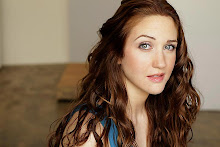skip to main |
skip to sidebar
To nourish your mind as well as your body
Anger and intolerance are the enemies of correct understanding.
-Mahatma Gandhi
Celebrating Hanukkah
Hanukkah, or Chanukah, is an eight-day long festival of light that begins on Kisev 25 in the Jewish calendar.
Symbolically, the festival celebrates the triumph of light over darkness, purity over adulteration, and spirituality over materiality.
Historically, the festival commemorates the victory in 165 BCE of a small Jewish rebel army (consisting of two groups - a nationalist group led by Mattathias the Hasmonean and his son Judah Maccabee, and a religious group known as the Chasidim) over the Seleucids (Syrian-Greeks) who had been seeking to Hellenize them. This was a really big deal considering the Seleucid had one of the biggest, strongest armies on earth at the time and the Jews were severely outnumbered. After their success, they went to rededicate the holy Temple in Jerusalem to G_d. When they sought to light the Temple's menorah, they could only find one uncontaminated flask of oil. Even though the flask only contained enough oil for one day, the menorah miraculously burned for eight days. [Note that the festival commemorates the military victory, but celebrates the miracle of the oil: it is not a festival that glorifies war.]
At the heart of the Hanukkah festival is the nightly menorah lighting. The menorah (sometimes called chanukkiah) is a candelabra that holds nine candles: one for each night of the miracle of the oil, plus another candle called a shammus (alt. shamash), a servant or attendant candle, which is a different height. On the first night, one candle is placed at the far right. The shammus candle is lit and three berakhot (blessings) are recited. After reciting the blessings, the first candle is then lit using the shammus candle and the shammus candle is placed back in its holder. Each night, another candle is added, from left to right until, on the eighth night, all nine candles are lit (the nine plus the shammus).
Another Hanukkah tradition is the dreidel, a four sided spinning top with a Hebrew letter inscribed on each side. In Israel the letters mean "A Great Miracle Happened Here"; dreidels in other places have letters meaning "A Great Miracle Happened There". The dreidel game was made popular during the rule of Antiochus, before the Maccabees revolt - a time when soldiers could execute any Jews who were caught practicing their religion. When Jews gathered to study the Torah (the entire body of Jewish teachings consisting of the first five books of the Bible: Genesis, Exodus, Leviticus, Numbers, and Deuteronomy), they would conceal the intent of their activity by playing "gambling games" with the dreidel whenever an official, soldier, or inspector was in sight.
Customarily, dishes for the Hanukkah festival are foods that have been fried in oil. The oil once again hearkens back to the miracle of the oil. The two most common dishes are latkes, crispy fried potato pancakes, and sufganiyot (alt. sufganiot), jelly doughnuts without the hole.
Note: The above information was researched for the sake of education and appreciation, in a hope to promote cross-cultural pollination, tolerance, and peaceful understanding. If I got anything wrong or missed anything, please feel free to comment. I love to learn and I'd like this to be as factual as possible.




No comments:
Post a Comment